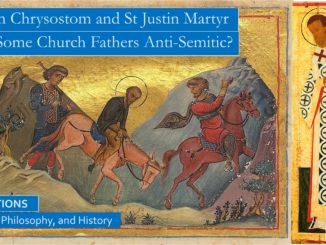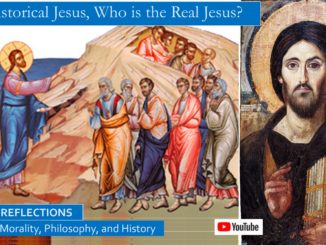
John Chrysostom, Justin Martyr, and the Church Fathers Preach Against the Judaizers and the Jews
John Chrysostom is the most strident of the early Church writers in his writings opposing the Judaizers where he warned his flock that Christians should not adopt Jewish customs and practices, that Christians needed to celebrate the Church festivals rather than the Jewish festivals, that Christians should not attend services at the synagogue. His work “Against the Judaizers” is so polemic that it is far more anti-Semitic than the writings of Barnabas and St Justin Martyr and many other church fathers, it is painful for us modern readers to read, we who remember the horrific events of the Holocaust. This work is not in the standard collection of the works of the Nicene and Anti-Nicene Fathers, but it was widely read in medieval times and afterward, and unfortunately was used to justify the European and Russian pogroms and persecutions against the Jews.[2]
One scholar who has pondered the problems posed polemic stands against the Judaizers by St John Chrysostom and also St Cyril is Robert Wilken. In this book “John Chrysostom and the Jews,” he explores the history of the early church to better understand the world of the early Church Fathers. We cannot totally excuse the errors in the teachings of the early Church Fathers, but neither can we blindly judge and condemn them for not knowing the lessons of the Holocaust. There is nothing wrong with reading the Church Fathers as they apply to our modern world, but particularly in this case we should also let the Church Fathers in their ancient historical context, we need to do both lest we have a distorted understanding of the history of our faith. […]

